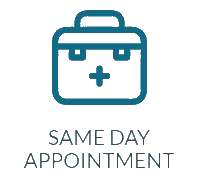Physicians May Place Insufficient Emphasis on CV Disease in Women

Cardiovascular disease is a pervasive threat to women’s health. Although it kills more women than cancer, it often doesn’t receive the attention it should.
Getting the care you need
Regular care is a critical part of maintaining a healthy lifestyle, and working with your physician is an important part of lowering your risk of cardiovascular disease. 80% of heart disease and stroke events may be avoided through lifestyle changes and education, according to the American Heart Association.
If your doctor doesn’t bring it up with you, feel free to ask him or her about your specific risks. If you have a family history of heart disease, make sure your doctor knows about it.
Recognizing the risk factors
90% of women have at least one risk factor for heart disease or stroke. Women can have many of the same risk factors that men do, including obesity, high blood pressure, high cholesterol, sleep apnea, and a family history of heart disease. However, they can also have other risk factors that affect them more than the same issues affect men.
Doctors don’t always address these risk factors with women. In fact, one study revealed that while 74% of women in the study had one or more risk factors for heart disease, only 16% had been told so.
The following are some heart disease risk factors that can affect women more than men, or in some cases, exclusively women:
- Smoking
- Diabetes
- Depression
- Using birth control pills – This can raise your risk of cardiovascular disease, especially if you smoke.
- Menopause – Lower estrogen levels can increase your risk of developing cardiovascular disease in smaller blood vessels.
- Complications during pregnancy
- Lack of physical activity
- Broken heart syndrome – This results from stressful situations that cause severe heart muscle failure.
- Dramatic weight fluctuations – Women whose weight goes up and down dramatically and repeatedly due to “yo-yo dieting” raise their risk of heart disease.
Recognizing symptoms of a heart attack
A heart attack is often described as a feeling of an elephant sitting on your chest, but women are more likely than men to have symptoms that aren’t related to chest pain. It’s important to recognize the following symptoms so you can get help as soon as possible if you could be having a heart attack:
- Nausea or vomiting
- Abdominal discomfort
- Pain in the jaw, shoulder, upper back, or arm
- Feeling short of breath
- Sweating
- Feeling unusually fatigued
- Feeling lightheaded or dizzy
If you’d like to talk to a doctor about your risk of cardiovascular disease, contact us today for a consultation with Park Avenue Medical Professionals. Our team of board-certified, fellowship-trained physicians works together to ensure seamless, integrated care. Fill out the form on this page to request an appointment or call 212.427.2000 to learn more.



